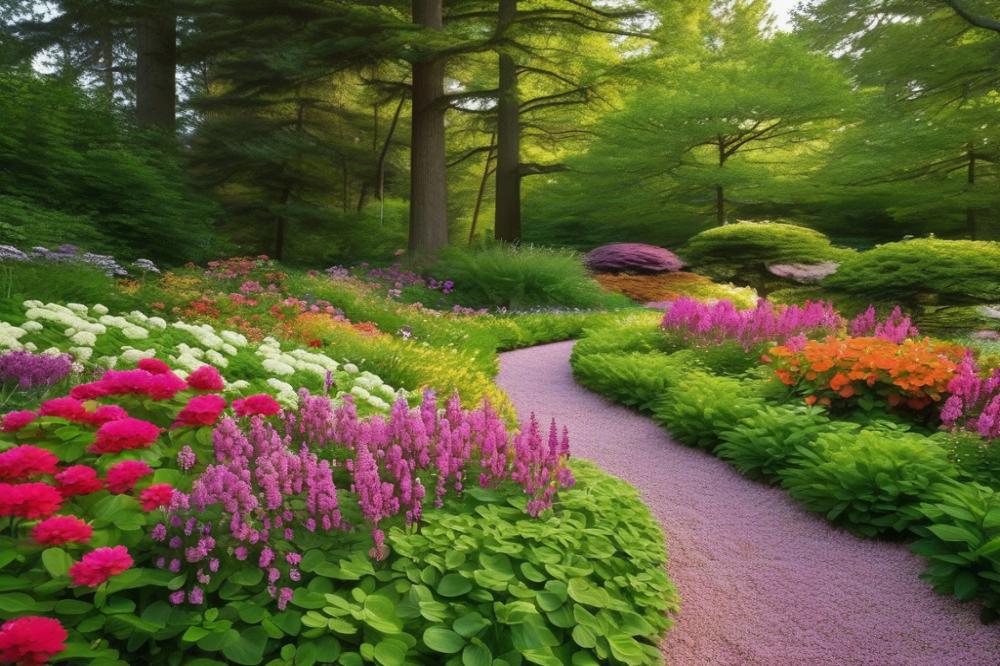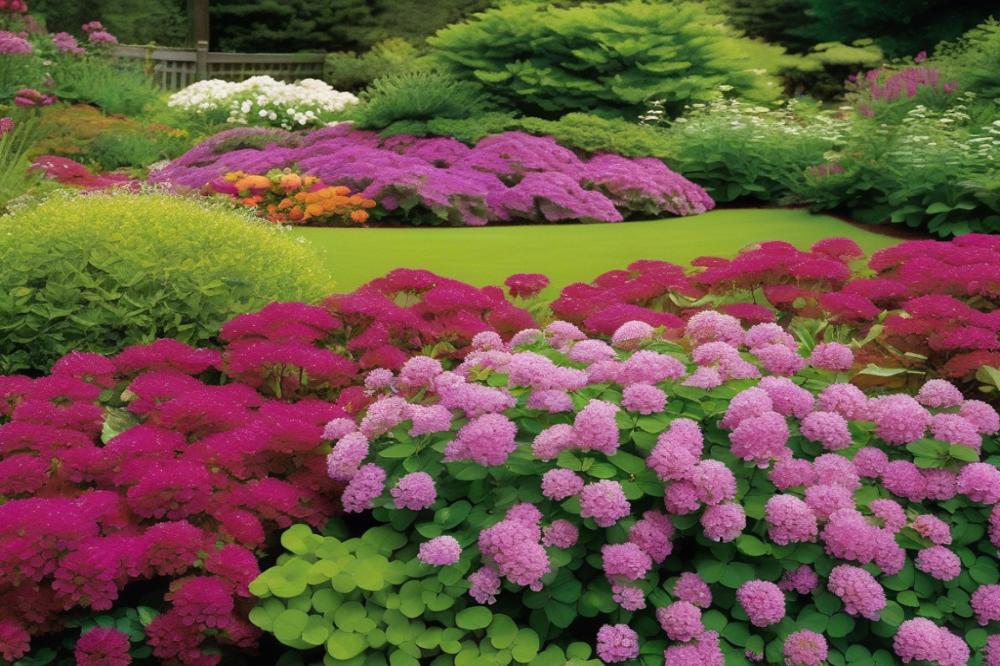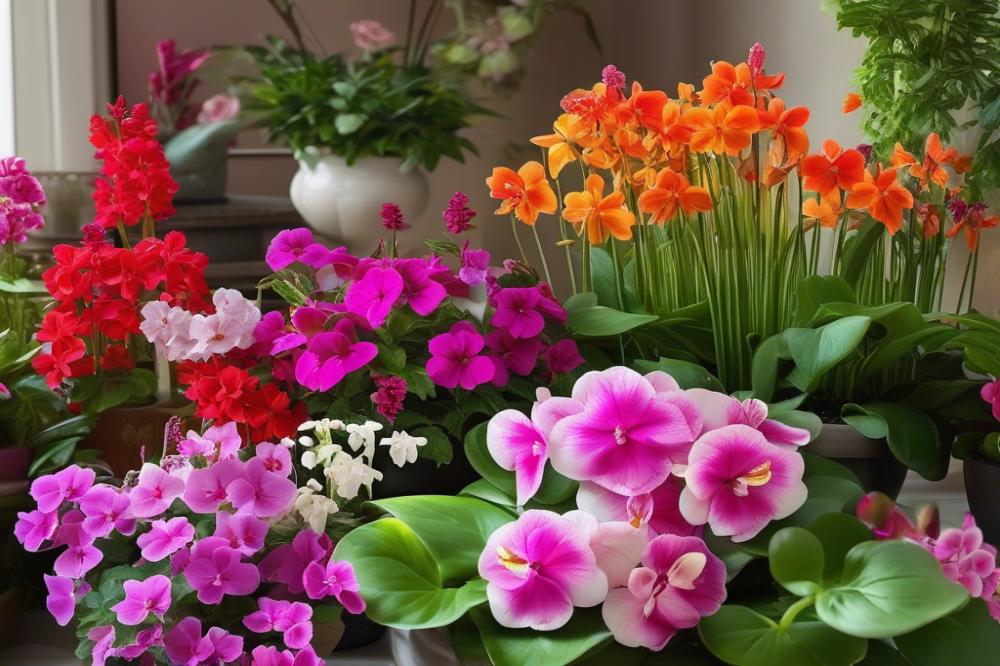The Advantages of Using Clover as a Flowering Ground Cover
Gardens thrive on ground covers that offer more than mere visual appeal. Flowering plants that hug the earth can transform ordinary spaces into vibrant ecosystems. Clover, in particular, has emerged as a popular choice among environmentally conscious gardeners. Its benefits extend beyond beauty, contributing to sustainable landscaping practices.
As a flowering ground cover, clover delivers a myriad of advantages. It supports soil health by fixing nitrogen. This ability enriches the earth and reduces the need for chemical fertilizers. Gardeners appreciate the low maintenance aspect, as clover requires less mowing and watering compared to traditional grass lawns. Its tolerance to drought means that it holds up well in varied climates.
In addition to its practicality, clover enhances biodiversity. This green cover is not only aesthetically appealing but also serves as a habitat for beneficial insects. It attracts pollinators, contributing to the overall health of the garden. Options such as Flowering Clover create landscapes that welcome bees and butterflies. This pollinator-friendly environment plays a crucial role in maintaining the balance of local ecosystems.
Moreover, clover aids in erosion control. Its dense root system locks soil in place, preventing runoff and degradation. When planted in problematic areas, clover can transform slopes into lush, stable ground. The virtues of Clover Ground Cover extend into every corner of the garden.
Choosing to incorporate clover into landscaping is a decision that benefits gardeners and the environment alike. This sustainable option reflects a growing trend towards more ecological gardening practices. As more people recognize its potential, clover stands ready to reshape how we think about ground covers, ensuring our gardens flourish for generations to come.
Clover Ground Cover: An Overview


Clover ground cover refers to the use of clover plants to create a green carpet of vegetation on the soil. Several types of clover exist, including white clover, red clover, and micro clover. Each type has distinct qualities, but they all offer similar benefits.
This choice of ground cover stands apart from traditional lawn grass in several ways. For one, clover is generally low maintenance. It does not require frequent mowing, which saves time and energy. Additionally, clover grows well in diverse conditions, including poor soil and shaded areas. Grass may struggle under these circumstances, yet clover thrives.
A major advantage is its nitrogen-fixing ability. While grasses cannot perform this function, clover converts atmospheric nitrogen into a form that enriches the soil. This contributes to enhanced soil health and reduces the need for chemical fertilizers. Healthier soil promotes better growth for surrounding plants, leading to a more fruitful garden environment.
Clover contributes to sustainable landscaping efforts, as it helps prevent soil erosion. Its roots hold the ground together, reducing runoff during heavy rains. When planted, this green cover acts as a barrier to weeds, making garden upkeep easier and more efficient.
The aesthetic appeal of clover is undeniable. Its delicate white flowers attract pollinators, such as bees and butterflies, making gardens not only beautiful but also pollinator-friendly. This quality promotes biodiversity in local ecosystems, which is important for a balanced environment.
Adaptable to drought conditions, clover requires less water than traditional grasses. This feature makes it a smart choice for areas experiencing limited rainfall. Homeowners seeking a lush, green appearance without high water use will find clover an appealing option.
Environmental Advantages


Using clover as a flowering ground cover provides significant benefits for sustainable landscaping. This plant is known for its nitrogen-fixing properties, which greatly enhance soil health. By converting atmospheric nitrogen into a form plants can use, clover naturally enriches the earth. Over time, this process can reduce the need for chemical fertilizers, making it an eco-friendly choice.
Promoting biodiversity is another vital advantage of clover. As it grows, it creates a welcoming environment for various species, including pollinator-friendly insects. Bees and butterflies thrive in clover patches, feeding on the blossoms and aiding plant reproduction. Healthy ecosystems depend on such interactions, where every species plays a role in maintaining balance.
Low maintenance is a key reason many gardeners choose clover. Once established, it requires minimal care, making it an easy option for busy landscapes. It establishes a green cover that withstands drought conditions much better than traditional grass. This resilience aids in erosion control, preventing soil loss during heavy rains and providing stability to the ground.
Aesthetically, clover offers visual appeal. It forms lush carpets of green dotted with white, purple, or pink flowers, brightening spaces effortlessly. Its unique appearance can transform ordinary gardens into beautiful landscapes. The result is not just a pretty yard, but also a haven for wildlife, supporting an intricate web of life.
Overall, the use of clover contributes significantly to the health of both gardens and broader ecosystems. Properties that include its ability to fix nitrogen, promote biodiversity, and provide sustainable ground coverage make it a wise choice. As we embrace this flowering ground cover, we take steps towards a better environment, one garden at a time.
Maintenance and Care


Choosing clover as a flowering ground cover offers remarkable low maintenance benefits. Unlike traditional lawns, it does not require frequent mowing. In fact, mowing can be done occasionally to keep the plants looking tidy. Allowing clover to grow might even enhance its aesthetic appeal, creating a lush, green cover that looks inviting.
This flowering plant is drought-resistant, thriving even when conditions become dry. Watering needs are minimal once established, making it suitable for gardeners who desire a low-maintenance option. It can handle a variety of weather conditions, from heavy rains to warm sunny days. Ideal for those busy schedules, clover carries on without fuss.
Clover plays a vital role in sustainable landscaping. It contributes to soil health through nitrogen-fixing, which enriches the ground naturally. This quality not only benefits the clover itself but also supports nearby plants, helping to improve biodiversity in your garden. Additionally, its ability to prevent erosion control means that your soil stays intact and firm, which is always a win.
Being pollinator-friendly is another excellent aspect of clover. It attracts bees and butterflies, essential for healthy ecosystems. Gardeners who appreciate these beneficial creatures will find this advantage particularly appealing. Choosing clover is more than just a landscaping decision; it supports the environment in meaningful ways.
In summary, clover requires minimal intervention. This hardy plant can resist the elements and provide beautiful coverage on its own. Its numerous benefits make it a top choice for gardening enthusiasts who want stunning landscapes with less effort.
Erosion Control and Soil Health
Clover acts as an exceptional ground cover that helps prevent soil erosion. Its dense foliage shields the earth from the impact of heavy rainfall. This not only protects the soil surface but also minimizes runoff. The roots of clover grow deep into the ground, anchoring the soil in place. Such stability is crucial, especially in areas prone to washouts.
Erosion can wreak havoc on landscapes. When it rains heavily, loose dirt washes away, leaving behind bare patches. With clover, the ground remains stable. This natural green cover absorbs water, slowing down its movement and reducing the chances of soil loss. Improved water retention leads to healthier soil, which benefits plant life.
Not only does clover prevent erosion, but it also enhances soil quality. Being nitrogen-fixing, clover adds essential nutrients back into the ground. This boosts soil health significantly. Healthier soil promotes plant growth, leading to a more vibrant garden. Gardens thrive with clover as it nurtures the existing flora.
Moreover, using clover contributes to sustainable landscaping practices. This low maintenance option reduces the need for chemical fertilizers. It naturally enriches the soil while serving as a habitat for beneficial insects. Pollinator-friendly plants like clover encourage biodiversity in the ecosystem. This means more bees and butterflies visiting your garden, resulting in richer blooms.
Drought-resistant, clover requires less water once established. Its adaptability makes it a practical choice for various climates. Gardens dotted with clover benefit from its aesthetic appeal during blooming seasons. The vibrant flowers attract attention, blending beauty with functionality.
In essence, clover not only protects but actively improves the landscape. By incorporating this flowering ground cover, gardeners can enjoy a flourishing environment while promoting ecological health. Its multifaceted advantages make clover an indispensable addition to any garden space.
Aesthetic Appeal and Landscaping Benefits
Clover serves as a stunning ground cover in gardens. Its vibrant flowers, ranging from white to purple, bring color to landscapes. Visitors often admire the lush green foliage that persists every season. This plant’s aesthetic features can enhance any outdoor space effortlessly.
Garden designers appreciate how clover complements other plants. It pairs beautifully with taller flowers and shrubs. Such a combination creates layers and visual interest. The low maintenance required means gardeners spend less time weeding and more time enjoying the beauty of their green cover.
Because clover is drought-resistant, it thrives in various conditions. Even in dry spells, it maintains its fresh appearance. This adaptability allows it to fit into different garden styles, from rustic to modern. Many people seek sustainable landscaping solutions. Clover fits perfectly within these eco-friendly ideals.
Beyond looks, clover contributes to soil health. As a nitrogen-fixing plant, it enriches the soil naturally. This process helps other plants grow stronger. Furthermore, its ability to promote biodiversity makes it a fantastic choice. Pollinator-friendly gardens benefit from clover’s blooms, attracting bees and butterflies.
Homeowners focusing on erosion control find clover effective. Its roots hold the soil firmly in place. That can be especially useful on slopes or in areas prone to run-off. This functionality, combined with its visual beauty, offers a practical solution for anyone looking to enhance their property’s appearance.
Final Thoughts on Clover as Ground Cover
Utilizing clover as a flowering ground cover offers numerous advantages to any garden. One key advantage is its contribution to sustainability. Clover naturally enriches the soil by fixing nitrogen, which reduces the need for synthetic fertilizers. This helps create a more balanced ecosystem, benefiting both plants and soil health.
Maintenance is another area where clover shines. Growing clover requires significantly less upkeep compared to traditional grass lawns. Its resilience allows it to thrive in a variety of conditions, even in less-than-ideal soil. This makes it an ideal choice for gardeners who want beauty without constant care.
Aesthetically, clover adds a soft, vibrant appearance to landscapes. With its lovely white, pink, or purple flowers, it attracts attention and provides a charming contrast to other plants. This capability makes it a pollinator-friendly option, inviting bees and butterflies to your space.
Incorporating clover ground cover brings multifaceted benefits to gardens. Gardeners should consider this option for its unique contributions to healthier, more beautiful outdoor spaces. Embracing clover can lead to a more eco-friendly approach to sustainable landscaping. It’s a choice that benefits the environment and enhances the garden’s overall appeal. So, why not give clover a try in your next gardening project?



